Non-cash Gifts
Sharing your Assets with the Community
The Community Foundation accepts gifts in the form of other assets, including appreciated stock, life insurance, and real estate. Non-cash gifts, also called “asset-based giving” simply means making a gift with something of value which the Internal Revenue Service (IRS) does not consider cash. Securities-based gifts, such as stocks and mutual funds, fit into the non-cash category, as do cars, boats, antiques, jewelry, real estate, even stock in a privately-held company. It’s anything of value that could be converted to cash.We offer more detail below on some options, but please contact us to inquire about your non-cash gift options.
Everybody wins when you make a gift of appreciated stock to the Community Foundation. Your gains are put to good use. Your gift of stock is reinvested in your community, and it qualifies for an immediate tax deduction based on the full market value.
Giving appreciated stock through a community foundation is popular among a range of givers — individual investors, families, entrepreneurs, and even groups of friends who have formed investment clubs.
By giving stock through your community foundation, you can avoid capital gains taxes that would be due as a result of its sale and establish a charitable fund that benefits the local causes and organizations you care about most. With gifts of appreciated stock, your stock market earnings translate into community impact, so you get a more rewarding return on your portfolio. You can set up a scholarship; support special programs for at-risk youth, senior citizens, or other people in need; address environmental concerns; or support the arts.
STOCK AND WIRE TRANSFER INSTRUCTIONS
Giving appreciated stock through a community foundation is popular among a range of givers — individual investors, families, entrepreneurs, and even groups of friends who have formed investment clubs.
By giving stock through your community foundation, you can avoid capital gains taxes that would be due as a result of its sale and establish a charitable fund that benefits the local causes and organizations you care about most. With gifts of appreciated stock, your stock market earnings translate into community impact, so you get a more rewarding return on your portfolio. You can set up a scholarship; support special programs for at-risk youth, senior citizens, or other people in need; address environmental concerns; or support the arts.
STOCK AND WIRE TRANSFER INSTRUCTIONS
Life insurance provides a simple way for you to give a significant gift to charity and establish your legacy, with tax benefits that you can enjoy during your lifetime.
You can make a gift when life insurance is no longer needed for personal financial wealth replacement by either giving a paid-up policy or continuing to pay premiums. You may receive a number of tax benefits, including reduced estate and income taxes. And, if you choose to continue paying premiums through your community foundation, you will be entitled to a charitable contributions deduction of up to 50 percent of your adjusted gross income.
You can replace the dollar value of an asset transferred to your community foundation with a life insurance policy. Or, you can use regular payments from a Charitable Remainder Trust to establish an irrevocable life insurance trust. The trust can purchase insurance on your life to benefit your heirs. This way, you can make a gift to your community foundation and replace the value of this gift within your estate with life insurance proceeds.
You can make a gift when life insurance is no longer needed for personal financial wealth replacement by either giving a paid-up policy or continuing to pay premiums. You may receive a number of tax benefits, including reduced estate and income taxes. And, if you choose to continue paying premiums through your community foundation, you will be entitled to a charitable contributions deduction of up to 50 percent of your adjusted gross income.
You can replace the dollar value of an asset transferred to your community foundation with a life insurance policy. Or, you can use regular payments from a Charitable Remainder Trust to establish an irrevocable life insurance trust. The trust can purchase insurance on your life to benefit your heirs. This way, you can make a gift to your community foundation and replace the value of this gift within your estate with life insurance proceeds.
Making a charitable gift of real estate through the Community Foundation can help you turn your property gains into community good. Gifts of real estate range from personal residences and vacation homes to rental properties, farmland, and commercially developed land — the value of which may exceed that of any other asset you own. With the help of the Community Foundation, you can use real estate to make a bigger charitable difference than you thought possible, avoid estate taxes, and minimize or eliminate burden placed on your heirs.
to give real estate outright and receive an immediate tax deduction, or retain the use of the property during your lifetime and make a planned gift to your community foundation. You may also choose to convert real estate into a stream of income for the rest of your life by establishing a Charitable Remainder Trust with the Community Foundation. Doing this lets you transform a low-yield asset into a higher-yield, income-producing asset and claim a tax deduction for the charitable portion of the gift.
A gift of real estate must be professionally appraised to establish its fair market value. It is also assessed for compliance with our acceptance policies to make sure its resale will provide the appropriate value to community.
to give real estate outright and receive an immediate tax deduction, or retain the use of the property during your lifetime and make a planned gift to your community foundation. You may also choose to convert real estate into a stream of income for the rest of your life by establishing a Charitable Remainder Trust with the Community Foundation. Doing this lets you transform a low-yield asset into a higher-yield, income-producing asset and claim a tax deduction for the charitable portion of the gift.
A gift of real estate must be professionally appraised to establish its fair market value. It is also assessed for compliance with our acceptance policies to make sure its resale will provide the appropriate value to community.

 Questions?
Questions?




